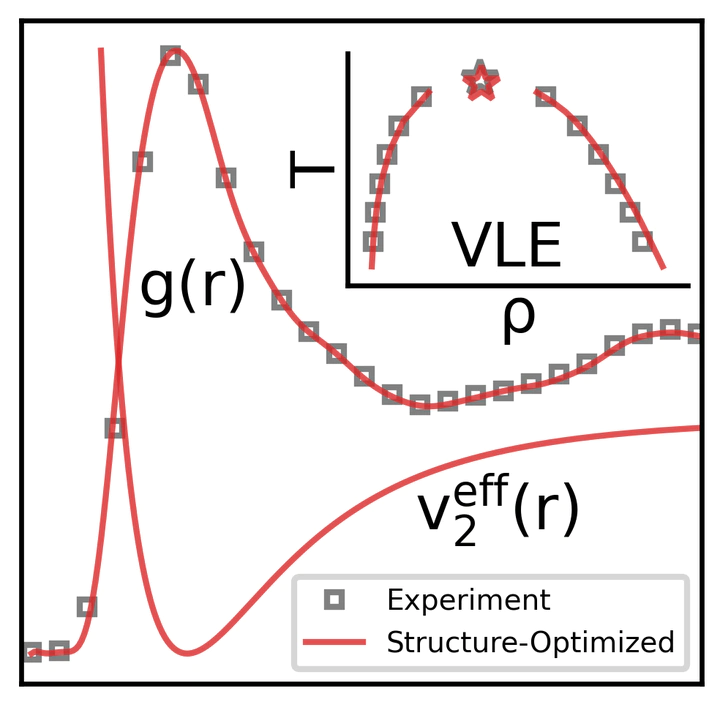Structure Optimized Potential Refinement (SOPR)

Structure-optimized potential refinement (SOPR) is a Gaussian process (GP) assisted iterative Boltzmann inversion method designed to predict interaction potentials from a provided set of site-site partial radial distribution functions. SOPR leverages Henderson’s inverse theorem and GP regression to generate interaction potentials with probabilistic regularization. The SOPR method enables new use-cases for neutron diffraction, such as the development of accurate force fields for structure and self-assembly.
SOPR has been successfully implemented in noble gas fluids [1] and more recently a set of molecular liquids (benzene, methane, and water). SOPR potentials derived from neutron scattering data on noble gases are consistent with the quantum Drude oscillator model of atomic dipole polarization [2], providing evidence that the nonparametric form of the SOPR potential can learn subtle physics that extends beyond its classical representation.
[1] B.L. Shanks, et al. Transferable Force Fields from Experimental Scattering Data with Machine Learning Assisted Structure Refinement. J. Phys. Chem. Lett. (2022), https://pubs.acs.org/doi/10.1021/acs.jpclett.2c03163
[2] B.L. Shanks, et al. Experimental Evidence of Quantum Drude Oscillator Behavior in Liquids Revealed with Probabilistic Iterative Boltzmann Inversion. J. Chem. Phys. (2025) https://doi.org/10.1063/5.0260274